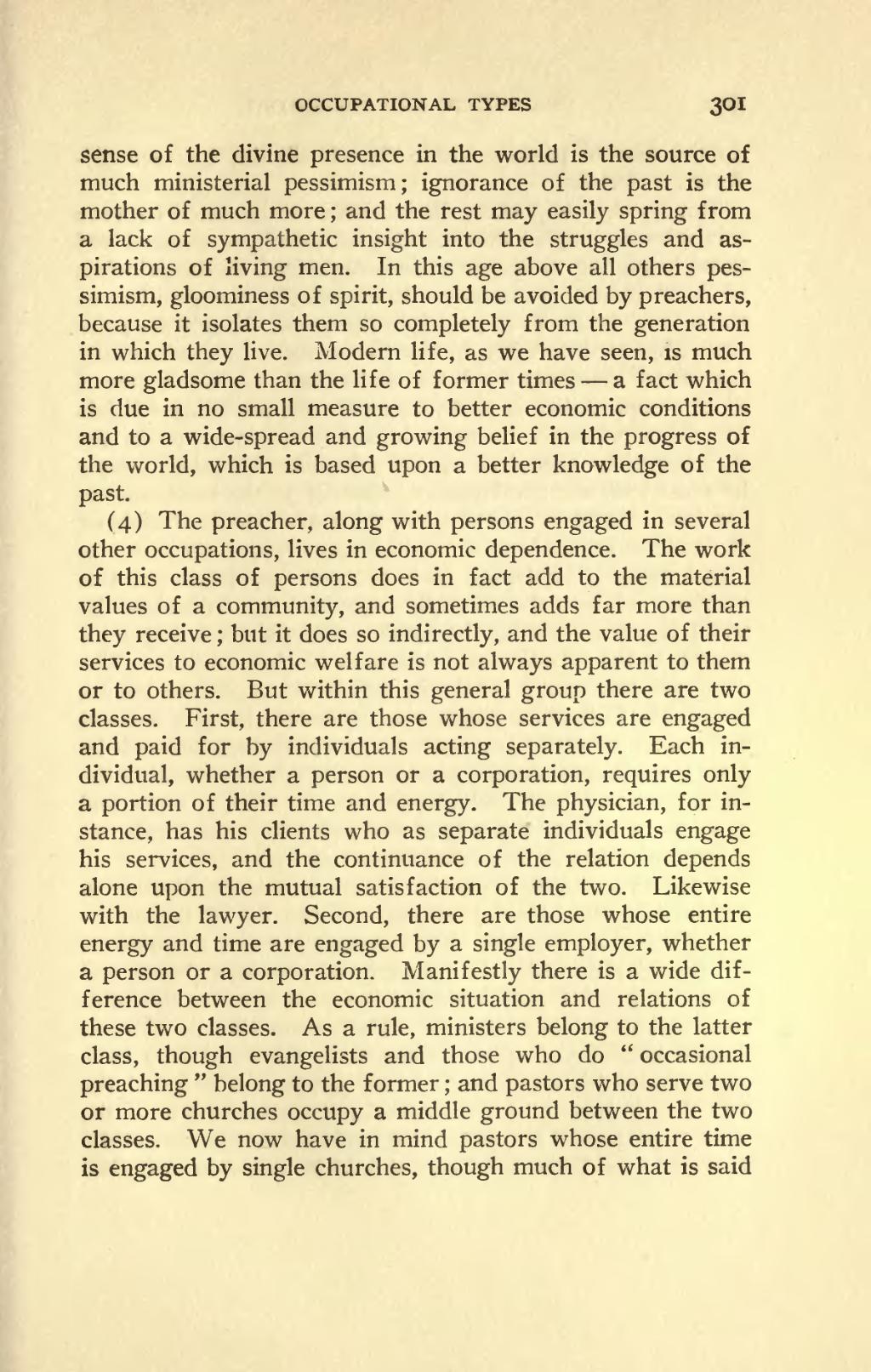sense of the divine presence in the world is the source of much ministerial pessimism; ignorance of the past is the mother of much more; and the rest may easily spring from a lack of sympathetic insight into the struggles and aspirations of living men. In this age above all others pessimism, gloominess of spirit, should be avoided by preachers, because it isolates them so completely from the generation in which they live. Modern life, as we have seen, is much more gladsome than the life of former times—a fact which is due in no small measure to better economic conditions and to a wide-spread and growing belief in the progress of the world, which is based upon a better knowledge of the past.
(4) The preacher, along with persons engaged in several other occupations, lives in economic dependence. The work of this class of persons does in fact add to the material values of a community, and sometimes adds far more than they receive; but it does so indirectly, and the value of their services to economic welfare is not always apparent to them or to others. But within this general group there are two classes. First, there are those whose services are engaged and paid for by individuals acting separately. Each individual, whether a person or a corporation, requires only a portion of their time and energy. The physician, for instance, has his clients who as separate individuals engage his services, and the continuance of the relation depends alone upon the mutual satisfaction of the two. Likewise with the lawyer. Second, there are those whose entire energy and time are engaged by a single employer, whether a person or a corporation. Manifestly there is a wide difference between the economic situation and relations of these two classes. As a rule, ministers belong to the latter class, though evangelists and those who do "occasional preaching" belong to the former; and pastors who serve two or more churches occupy a middle ground between the two classes. We now have in mind pastors whose entire time is engaged by single churches, though much of what is said
